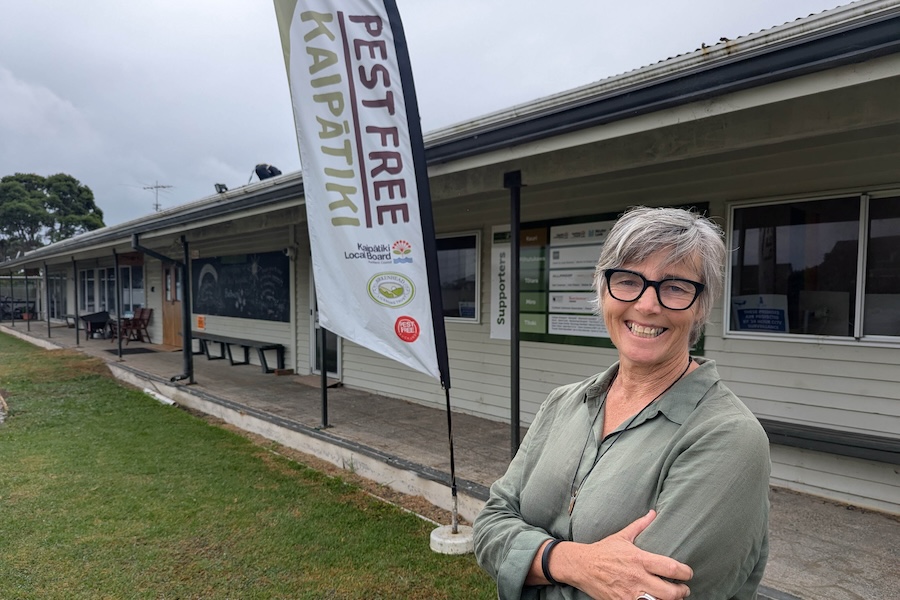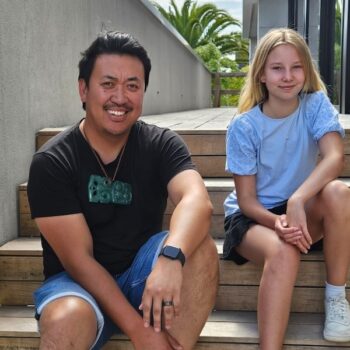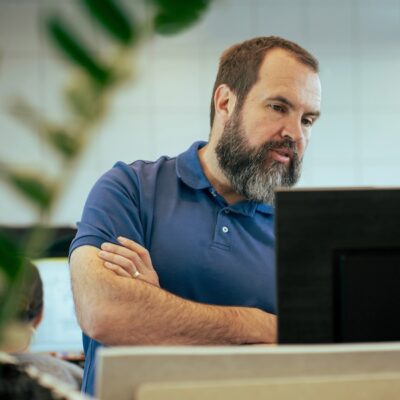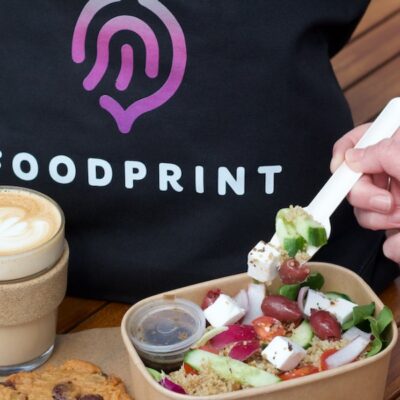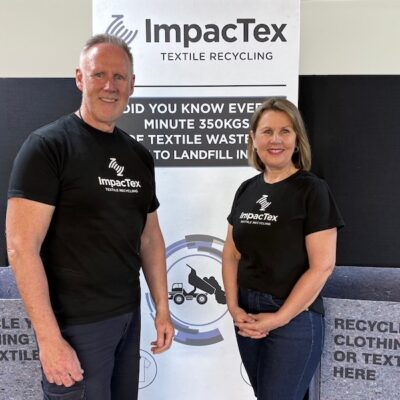Planting the seed for partnership success
Pictured above: Annie Dignan, General Manager of Pest Free Kaipātiki outside the organisation’s Glenfield base, converted from a bowling club building with the help of partner organisations and volunteers.
Pest Free Kaipātiki shows how business partnerships drive environmental and community impact, from hands-on work to strategic support.
The head of one of Auckland’s largest nature regeneration organisations says partnering with businesses is vital to its success and provides mutual benefits.
Pest Free Kaipātitki (PFK) is an umbrella organisation for more than 60 nature groups working in an area that runs from Birkenhead to Wairau on the city’s North Shore. As well as nature regeneration, its work promotes greater community connection and wellbeing.
Over the past five years PFK volunteers have donated more than 70,000 hours. Much of that time has gone towards planting close to 33,000 native trees and clearing pest weeds from more than 4000 areas.
While many businesses help PFK by sending staff to plant trees and eradicate pests and weeds, there are other ways they can help, says PFK General Manager Annie Dignan.
“If you’re a business looking to partner with an organisation like ours, begin with a good, honest conversation about your objectives. Work out what skills and resources you have and that the organisation needs,” she says.
“I spend a lot of time helping businesses make the link between ecological restoration and helping us as an organisation. Everyone wants to do the tree planting. However, if they can help us in other areas like HR or graphic design, then our team can be out there longer helping others with work on the ground.”
About three years ago construction company Naylor Love contacted PFK looking for more ways to support the organisation, having already taken part in planting, weeding and community days for several years. At the time PFK was working out of a basement on loan from another organisation. In its search for new premises, it had found a derelict bowling club in Glenfield. With renovation costs estimated at $650,000, the project was in jeopardy. Naylor Love stepped in with expert in-house engineering and estimation skills, helping to refine the tasks required to get the bowling club up to standard.
Once the work was under way, Naylor Love donated recycled building materials from their sites, including timber, carpet tiles, doors and rocks for the garden restoration. The business also brought in some of its suppliers, who donated time and materials. Within eight months and with the support of Naylor Love and their partners and plenty of work from PFK’s volunteers, the building had been renovated for a modest $120,000.
Annie describes this as the “snowball effect”.
“It was really, really powerful. And now this building is absolutely beautiful. People are enormously proud of this space and the sense of ownership is huge.”
As well as offices, the building includes areas for education and training. A toolshed in a separate building loans tools to the community. The main building is also a good example of climate change mitigation. Most of its electricity is generated by rooftop solar panels donated by Future Energy. The initiative is saving money. The first power bill for 2025 was $12.50. Rainwater is also harvested from the roof.
“We really pride ourselves on being a good partnership organisation. I think a real partnership is one where something is easy for one and valuable for the other. We’re both in it for the mutual gain. In this instance there were benefits to us, the staff at Naylor Love and our community. So many wins.”
The relationship with Naylor Love is ongoing, as are partnerships with Auckland Council and the Kaipātiki Local Board which provide about 70 percent of PFK’s funding every year.
Again, the partnerships are mutually beneficial.
“The local board takes a close interest in what we’re doing. Some members come along to our training workshops so they really know what we’re about. Auckland Council is a significant partner financially, but they’re also a great sounding board for us, particularly their environmental team.
“We get a huge amount of help and advice from them. And, at the same time we’re providing thousands of hours of volunteer time to look after and restore a wide area of parks and reserves. We’re also their eyes and ears for what’s happening out there.”
Free partnership guide
Auckland Council’s environmental team has also supported a free guide to help businesses and community groups collaborate on nature projects.
A Partnership Journey: Guide for Community Groups and Businesses was released by the Sustainable Business Network (SBN) last month. It features a step-by-step action plan with practical tips and resources.
“Our research shows that businesses in Aotearoa New Zealand are increasingly motivated to invest in nature. But they’re being held back by lack of knowledge,” says Gemma Coate, Programme Manager – Regenerating Nature at SBN.
“Partnerships are powerful tools for protecting nature. They help pool resources and expertise, amplify efforts and enhance credibility.
The guide identifies the principles that underpin successful collaborations, with a pathway to creating an effective partnership. It focuses on:
- What to consider before partnering
- How to connect and collaborate effectively
- Key factors and tips for delivering successful partnership projects
Gemma says the guide will support businesses’ sustainability strategies by giving them the confidence to explore new partnerships. For community groups, the guide helps demystify business processes, from pitches to funding.
“With government funding of the $1.2 billion Jobs for Nature programme nearing its end, environmental gains and skilled jobs risk being lost. It’s time for businesses to step up and take the lead. The projects, people and potential are already in place. The missing piece is investment and collaboration.”
Pest Free Kaipātiki is part of the Sustainable Business Network.

